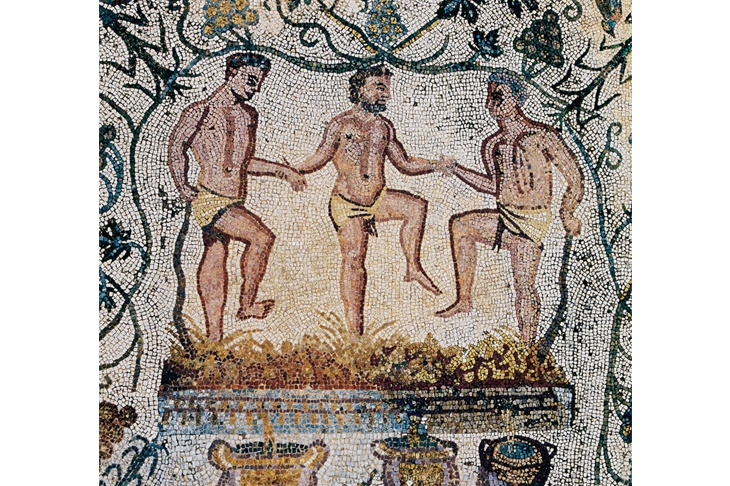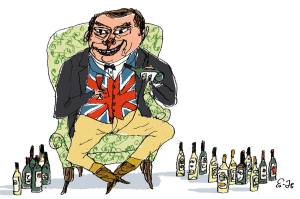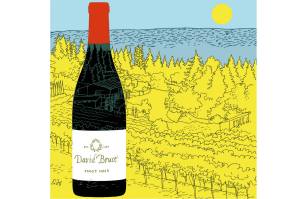Taste has a well-noted ability to evoke memory, so it is curious how infrequently most wine writers mine their pasts for inspiration. You wouldn’t think that some had ever fallen in love, read a novel or even got drunk. Instead they obsess over scores, sulphur and diurnal temperature variation. Thank heavens for Nina Caplan, who brings a bit of hinterland to this often dry subject in her weekly New Statesman column.
Characteristically, The Wandering Vine, her first book, is about much more than wine. It’s a heady blend of travel, literature, memoir, history and what I can only describe as psychogeography, though don’t let that put you off. The publishers have given the book a whimsical cover, which is misleading, because this is not a lightweight read. Caplan has set herself a daunting task, to examine identity, belonging, the legacy of the Romans, the expulsion of Jews from Europe and her own family through the prism of wine.
She is a member of those two great wandering tribes, the Jews and the Australians, and she uses the vine, carried around the world by the Romans, as a metaphor for immigration and rootedness. Wine is central to her life, something she inherited from her late father.
In the course of her travels, Caplan opens various bottles of wine her father left her, some wonderful, some not so, but all of them enable her, despite being an atheist, to commune with him. These intensely personal moments are by far the strongest parts of the book.
Her wanderings begin in England and take her to France, Spain and Italy; she meets winemakers and looks for evidence of the Roman occupation and a lost Jewish Europe before the expulsions in the middle ages. It struck me quite early on that wine is not the easiest way to get in touch with the Roman past. Their legacy is all around us, in our languages, laws and most strikingly in the great engineering feats like the arena at Nîmes. We can read Tacitus and he speaks to us across the epochs, but wine, so good at evoking memory, is useless here because we don’t know what grapes the Romans would have planted or what their wine would have tasted like. This leads to clunky moments in which Caplan tries to link present day viticulture to the ancient past. One winemaker, frustrated with Caplan’s musing about the Romans, says: ‘We don’t know about them — those traditions were lost!’
Europe’s tumultuous present is the backdrop to her travels, but beyond mentions of Catalan nationalism Caplan never makes anything explicit. This gives the book an appealing timelessness and, let’s face it, who wants to read another rant about Brexit? But it also seems perverse that Caplan can wander about France saddened by historic anti-Semitism without noting how once again France is not a safe home for the Jews. Instead she retreats into abstraction: ‘I wonder aloud what the difference is between the frequently toxic nostalgia of retrograde nationalism and the purifying movement towards more natural winemaking.’ Surely a perfect moment for Paul Whitehouse to pop up and say: ‘Anyone fancy a pint?’
There’s so much thought here that at times Caplan could have done with an interlocutor (or a good editor) to bring out her points and tame her penchant for abstraction. A lot of arguments are left hanging in the air. It’s a shame, because when she does think more empirically, the book comes to life. A meeting with Beltran Domecq, who speaks like an Englishman despite being born into an originally French family in Jerez, makes her point about immigration and rootedness far more eloquently than pages of theorising. She writes beautifully about wine; one she describes as a ‘blackberry and granite viennoiserie’ which is about the best description of a cool climate syrah I’ve read. And when she returns to her own family, that’s when the writing catches fire.
The Wandering Vine has a depth and soul lacking in most wine books. If Caplan occasionally overreaches herself, then that is, I suppose, a tribute to her ambition. The route is sometimes rocky and the destination not always clear, but Caplan is never less than a thoroughly engaging guide.


















